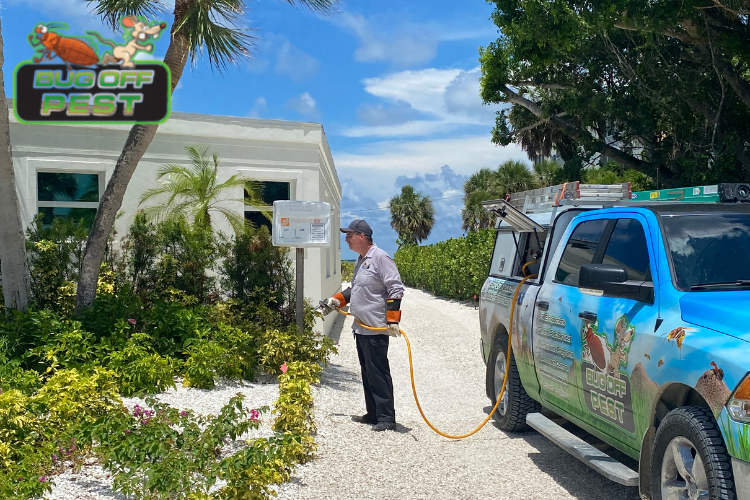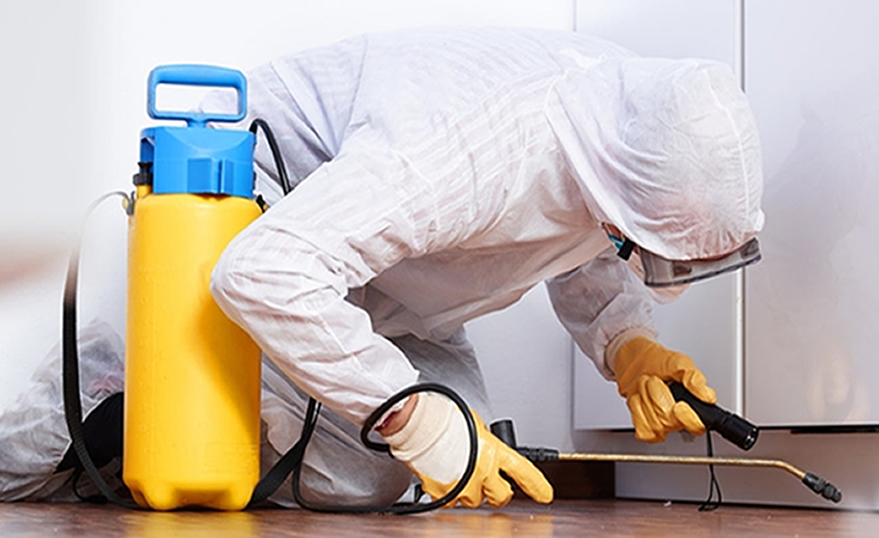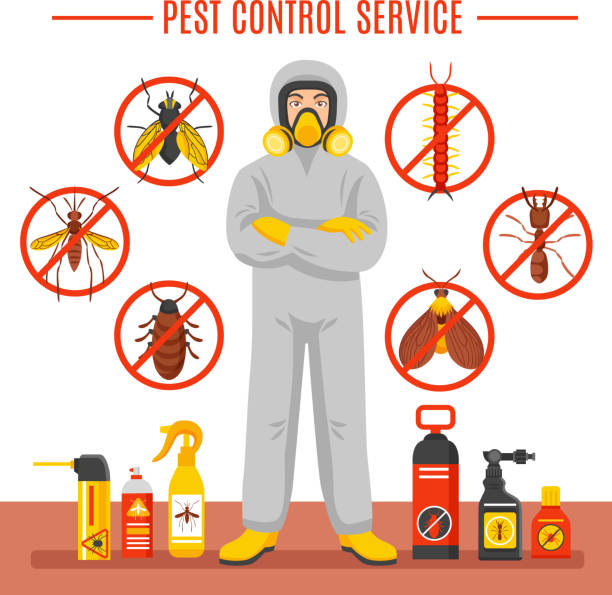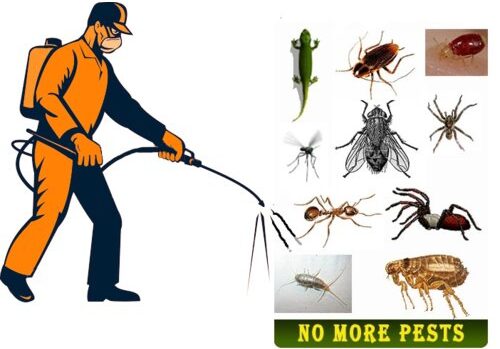Best Port Charlotte Pest Control Service
Comprehensive Overview to Comprehending Bug Control Methods and Their Therapy
Comprehending pest control techniques is necessary for efficient monitoring of unwanted organisms that posture risks to health and wellness, agriculture, and residential property. What variables should be thought about when picking the proper pest control method for a certain circumstance?
Review of Insect Control Techniques
Parasite control techniques include a variety of approaches designed to manage and remove unwanted microorganisms that can harm human health, agriculture, and property. Reliable pest management is crucial for preserving the integrity of environments and guaranteeing the security of food products. These methods can be generally categorized into 3 main approaches: cultural, mechanical, and organic controls.

Social control entails modifying farming methods or ecological problems to minimize bug establishment and recreation. This strategy consists of plant rotation, sanitation, and selecting pest-resistant plant selections. Mechanical control relies upon physical barriers or devices to stop insect gain access to or directly remove them. Instances consist of catches, webs, and hand-picking damaging insects.
Biological control makes use of all-natural predators, parasites, or microorganisms to control pest populations. This method highlights eco-friendly balance and can consist of introducing useful bugs, such as ladybugs or predacious nematodes, to handle parasite existence.
Integrated bug administration (IPM) integrates these techniques, utilizing an alternative method that highlights prevention, monitoring, and responsible administration. By utilizing a blend of these techniques, insect control can be a lot more lasting and efficient, decreasing reliance on chemical treatments while protecting human health and wellness and the environment.

Chemical Parasite Control Solutions
A range of chemical bug control remedies are available, offering effective alternatives for managing bug populations when other techniques might fail. These remedies mostly include insecticides, herbicides, fungicides, and rodenticides, each developed to target particular insects while minimizing injury to non-target organisms.
Insecticides are particularly effective versus a series of insects, consisting of ants, roaches, and termites, and can be classified as contact or systemic agents. Call pesticides kill pests on call, while systemic insecticides are absorbed by plants, making them hazardous to bugs that prey on them. Herbicides are used to manage unwanted plant life, whereas fungicides are crucial for handling fungal conditions that can harm plants and ornamental plants.
In addition, integrated insect administration (IPM) concepts ought to be utilized, combining chemical remedies with social, mechanical, and organic strategies for sustainable bug control. This all natural method not just boosts pest management performance yet also reduces potential environmental impacts linked with chemical usage.
Biological Bug Control Methods
Biological insect control strategies provide an eco-friendly option to chemical approaches by utilizing natural predators, parasites, this link or virus to manage insect populaces. This method leverages the environmental relationships in between microorganisms, advertising a balanced community while decreasing chemical residue in the setting.
One of the most common biological control methods entails the introduction of all-natural enemies. Ladybugs are utilized to control aphid populaces, while parasitical wasps can target caterpillars and various other pests. These natural predators effectively minimize pest numbers without harming valuable bugs.
Additionally, microbial agents such as bacteria, fungis, and infections are utilized to infect and eliminate details bugs. Bacillus thuringiensis (Bt), a naturally occurring germs, is extensively utilized to regulate caterpillars and other larvae, showcasing the efficiency of microbial bug control.

Physical and Mechanical Methods
Regularly used in integrated insect monitoring strategies, physical and mechanical methods offer as efficient tools for regulating bug populations without using chemicals. These techniques rely on physical barriers, traps, and other mechanical tools to prevent or eliminate bugs, making them eco friendly choices.
Physical techniques consist of the use of barriers such as insect netting, displays, or row covers that literally block try these out parasites from accessing plants. This is specifically useful in agricultural settings where crop security is necessary. Additionally, habitat control, such as eliminating debris and standing water, can lower pest breeding sites, consequently lessening problems.
Mechanical methods include catches, which can be made to capture details parasites. Sticky traps and scent catches are usual examples that entice and keep insects, facilitating tracking and control. Vacuuming is another mechanical method, efficient for getting rid of bugs from interior atmospheres, specifically in situations of problems.
Preventative Bug Administration Techniques
Efficient preventative pest administration techniques are essential for keeping healthy settings and minimizing pest-related concerns prior to they emerge (Pest Control in Port Charlotte, FL). These techniques concentrate on aggressive actions that minimize the likelihood of parasite problems by resolving the root causes

Another vital technique entails proper landscape design practices (Pest Control in Port Charlotte, FL). Maintaining plant life cut and far from buildings can minimize harborage areas for pests. In a similar way, executing incorporated insect management (IPM) strategies that include keeping an eye on insect populations and utilizing organic controls can cultivate a balanced environment that normally suppresses pest numbers.
Education and learning and training for personnel and locals on acknowledging very early indications of pest task are additionally essential components of an efficient preventative program. By cultivating an environment of recognition and caution, organizations and property go to this website owners can substantially boost their pest administration initiatives and secure their spaces versus future invasions.
Verdict
Employing an Integrated Pest Management (IPM) framework allows for the sustainable administration of parasites while minimizing ecological impact. Eventually, a thorough understanding of these diverse bug control methods is crucial for attaining successful outcomes in bug monitoring efforts.